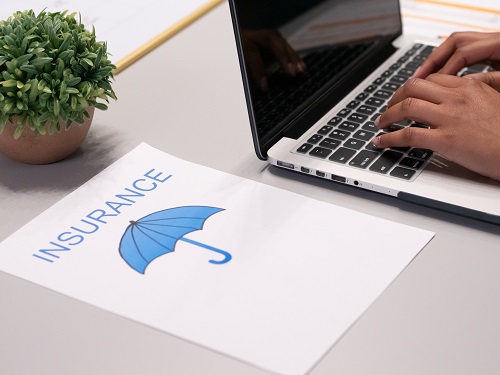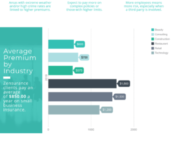Product recalls can severely impact small businesses, potentially leading to financial losses and damaging their brands and reputations.
Retailers, manufacturers, and e-commerce sellers frequently face product recalls, often through no fault of their own.
A product recall can affect any consumer product – from electronics to food – due to safety concerns, contamination, or design defects.
For example, an electronics product with faulty wiring or an overheating battery, food contaminated by salmonella, or poorly manufactured toys and other household items that pose a safety risk to children.

Retailers and e-commerce sellers are legally responsible for the safety of the products they sell or distribute, including packaged foods and defective items.
Managing a product recall can be extremely costly for small businesses, especially without proper insurance coverage. There are customer notification, shipping, disposal costs, and expenses related to reimbursing your customers or replacing the recalled product.
This is where product recall insurance becomes essential, offering critical financial protection that standard liability insurance may not provide.
What Is Product Recall Insurance?
Product recall insurance covers the costs of recalling a defective or contaminated product from the market. It typically covers customer notifications, shipping, and disposal expenses. It helps protect a company from financial losses and reputational damage due to a product recall event.>
What Causes a Product Recall?
A product recall is when customers are asked to return a product sold to them due to safety concerns, defects, or regulatory non-compliance. A product recall can be voluntary (issued by a manufacturer or distributor of a packaged product) or ordered by a government agency.
A product recall occurs when a company asks its customers to return a product it sold due to safety concerns, defects, or regulatory non-compliance. The goal of a recall is to protect consumers from potential harm and replace or remove faulty products from the market.
A product recall can be voluntary (issued by a manufacturer or distributor of a packaged product) or ordered by a government agency.
These agencies, such as The Canadian Food Inspection Agency, Health Canada, and Infection Prevention and Control Canada, have the authority to order a recall if they find a product to be unsafe or non-compliant with regulations.
Some common reasons for a product recall include:
- Safety hazards
- Defective products
- Contaminated products (food, beverages, cosmetics)
- Labelling errors
- Failure to comply with regulatory requirements
What Does Product Recall Insurance Cover?
Product recalls are first-party losses – expenses that affect a business owner or retailer.
Product recall insurance reimburses business owners from financial losses sustained when a product is recalled, whether the government or a manufacturer orders that recall after discovering a defect.
Product recall insurance for small businesses covers direct costs of recalling faulty or dangerous consumer products, including:
- The retrieval and destruction of defective products
- Notification fees associated with contacting customers who bought the defective item
- Shipping and logistics costs to retrieve and replace defective products
- Crisis management expenses
Without product recall coverage, small businesses risk bankruptcy, as many cannot absorb the high financial losses from a large-scale recall – especially if they’re named in a third-party bodily injury or property damage lawsuit.
Items that are often subject to product recalls include:
- Food and beverage items
- Health food products and supplements
- Electronics products
- Metal and plastic components
- Household goods
- Automotive components
Common Misconceptions About Product Recall Coverage
Some retailers, online sellers, and manufacturers underestimate the importance of product recall insurance until it’s too late. Among the misconceptions about the value of this protection may include:
Assuming a Product Recall Will Never Happen
It’s understandable that companies that have never experienced a product recall notice may be reluctant to purchase this essential protection. However, product recalls happen frequently, and the financial impact of one can be devastating.
Believing Quality Assurance Will Prevent Product Recalls
Quality Assurance (QA) programs are valuable; however, they are not foolproof. People make mistakes, and defective items can be missed. Also, a business’s supply chain may be extensive, and relying on every supplier’s QA processes to be exemplary is risky.
Thinking a Supplier Will Cover Product Recall Expenses
Relying on a supplier to cover the expense of a product recall (such as lost sales and third-party costs) is not wise risk management. A supplier may refuse to do so or argue they’re not responsible, it may not have the funds to pay the costs, or the supplier contract may limit the supplier’s liability.
Assuming Liability Insurance Covers Product Recalls
Liability insurance protects businesses from many things, but assuming a standard liability policy will cover product recalls could prove financially disastrous. A liability policy might exclude product recalls or offer only limited coverage.
4 Tips for Protecting Your Business From Product Recalls
Retailers, small business owners, and online sellers can take proactive steps to protect their businesses from product recalls and reputational damage, such as:
1. Be aware of government-ordered recalls
The Canadian government issues recall advisories and product safety alerts for consumers and merchants. Keeping tabs on the government’s latest recalls and safety alerts can help you know if an item you sell is listed as soon as possible.
2. Know the products you sell
Ensure that every product you sell complies with regulatory and industry safety standards. The Canada Consumer Safety Act can serve as a guide for items you sell that may pose a danger to health and safety and help ensure your compliance with the law.
Even if you only sell goods online occasionally as a hobby or side hustle, you need to be responsible for what you sell. That leads to the next point.
3. Communicate with your customers
Keep track of who you sell goods to, what was sold, and when. If there’s a product recall, you should initiate contact immediately with your customers (doing so may help reduce the risk of a bodily injury or property damage lawsuit).
Provide customers with the information they need about the product being recalled and what you’re doing to help them, such as offering a refund and covering the cost of shipping the item back to you.
4. Know if your suppliers and manufacturers indemnify you for recalls
Review procurement contracts with suppliers and manufacturers you do business with to see if they indemnify you for liabilities related to a product recall. You might want to consider not selling their goods if they don’t.
Product recalls are common, so all retailers and independent sellers should be ready to handle them when they occur.
Being prepared to react quickly and ensure they have product recall insurance can help protect business owners from expensive lawsuits and shield their brands and reputations.
How to Get Low-Cost Product Recall Insurance
Zensurance offers hassle-free, comprehensive, low-cost product recall insurance.
We’re proud to help hundreds of thousands of Canadian small business owners and independent professionals protect their finances and assets with customized commercial insurance policies.
Fill out our online application for a free quote in less than five minutes.
Our team of licensed brokers are insurance experts. They will shop our partner network of over 50 insurers to get the specific coverage you require, tailor it to suit your needs and budget, answer questions, and put your mind at ease so you can focus on growing your business.
– Updated July 25, 2025.
Sign Up for ZenMail
"*" indicates required fields
Recent Posts
What Is Hired and Non-Owned Commercial Auto Insurance?
If your business rents or leases vehicles, or if employees use their own cars for work, hired and non-owned commercial auto insurance can help protect your business from costly accidents and liability claims. Here’s what Canadian business owners need to know.
What Is a Deductible in Small Business Insurance? (Definition, Examples & How It Works)
A deductible is the amount your small business pays out of pocket when you file an insurance claim. Understanding how deductibles work can help you lower premiums, avoid surprises, and choose the right coverage.
Why E-Commerce Insurance Matters for Online Sellers in Canada
If you sell products online in Canada, e-commerce insurance – also known as online business insurance – is essential to protect your finances, inventory, and reputation. Here’s what online sellers, dropshippers, and small e-commerce businesses in Canada need to know.








